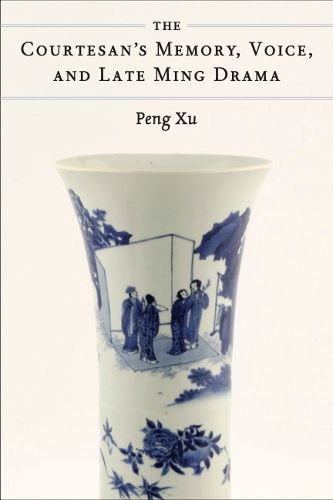Readings Newsletter
Become a Readings Member to make your shopping experience even easier.
Sign in or sign up for free!
You’re not far away from qualifying for FREE standard shipping within Australia
You’ve qualified for FREE standard shipping within Australia
The cart is loading…






Peng Xu's The Courtesan's Memory, Voice, and Late Ming Drama argues that courtesans of the era played an active role in the theater and their impact manifested in Chinese literary history, albeit concealed or erased. In the late Ming dynasty (1368-1644), theater was dominated by male performers with professional actresses largely absent from the stage, unlike in the Yuan dynasty (1271-1368), where women performed without restriction in theater troupes. Despite the prevailing assumption that women played no part in the theatrical movement, The Courtesan's Memory, Voice, and Late Ming Drama illuminates how courtesans, as serious theater artists and playwrights, left a significant mark on the male-dominated dramatic and literary landscapes. This study profoundly remaps the textbook narratives of gender bias, challenges modern prejudices prevalent in the literary history of Chinese drama, and reveals how theatrical conditions and writing styles shifted to accommodate courtesan performances.
Utilizing a wide range of sources such as scripts, city guides, biographies, diaries, letters, wood-block illustrations, and paintings, this study distinguishes itself from earlier studies of Chinese courtesans by not thematizing courtesans for their allegorical values, but rather pinpointing their agency in shaping the features of Chinese theater and recognizing courtesans as a source of creativity and development in the medium. Xu's focus on courtesan performance culture allows for fresh readings of canonical Chinese plays, opening up new ways of understanding the history of Chinese drama written by women, thus deviating from standard historiography based solely on the writings of men.
$9.00 standard shipping within Australia
FREE standard shipping within Australia for orders over $100.00
Express & International shipping calculated at checkout
Peng Xu's The Courtesan's Memory, Voice, and Late Ming Drama argues that courtesans of the era played an active role in the theater and their impact manifested in Chinese literary history, albeit concealed or erased. In the late Ming dynasty (1368-1644), theater was dominated by male performers with professional actresses largely absent from the stage, unlike in the Yuan dynasty (1271-1368), where women performed without restriction in theater troupes. Despite the prevailing assumption that women played no part in the theatrical movement, The Courtesan's Memory, Voice, and Late Ming Drama illuminates how courtesans, as serious theater artists and playwrights, left a significant mark on the male-dominated dramatic and literary landscapes. This study profoundly remaps the textbook narratives of gender bias, challenges modern prejudices prevalent in the literary history of Chinese drama, and reveals how theatrical conditions and writing styles shifted to accommodate courtesan performances.
Utilizing a wide range of sources such as scripts, city guides, biographies, diaries, letters, wood-block illustrations, and paintings, this study distinguishes itself from earlier studies of Chinese courtesans by not thematizing courtesans for their allegorical values, but rather pinpointing their agency in shaping the features of Chinese theater and recognizing courtesans as a source of creativity and development in the medium. Xu's focus on courtesan performance culture allows for fresh readings of canonical Chinese plays, opening up new ways of understanding the history of Chinese drama written by women, thus deviating from standard historiography based solely on the writings of men.